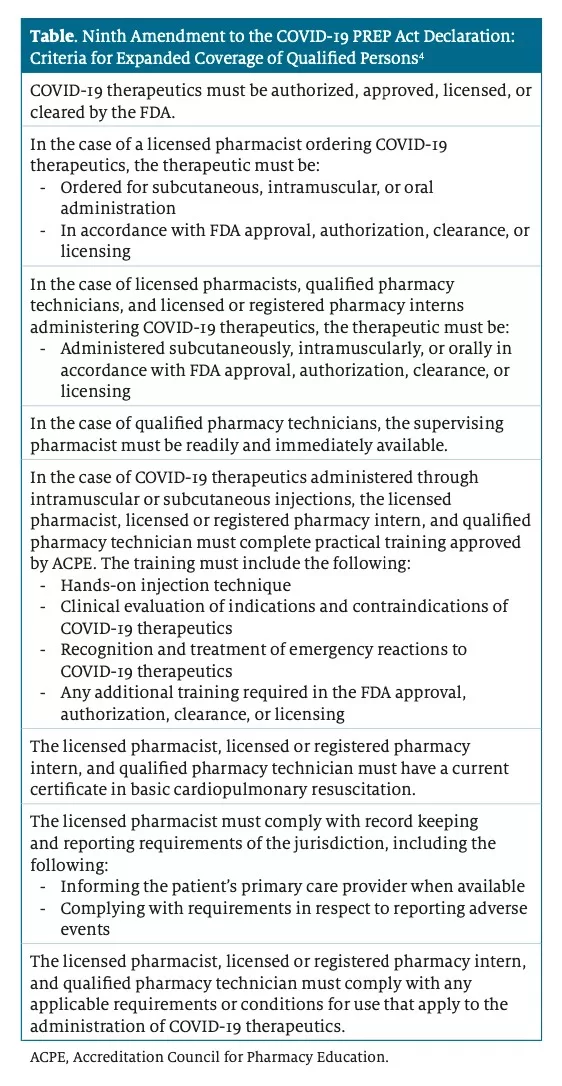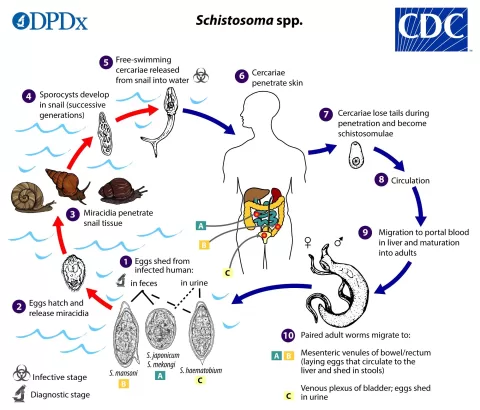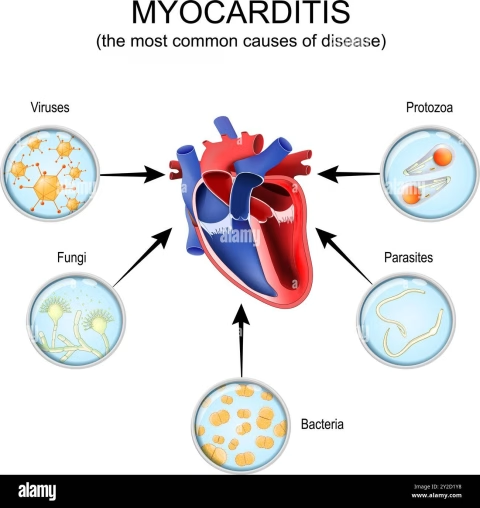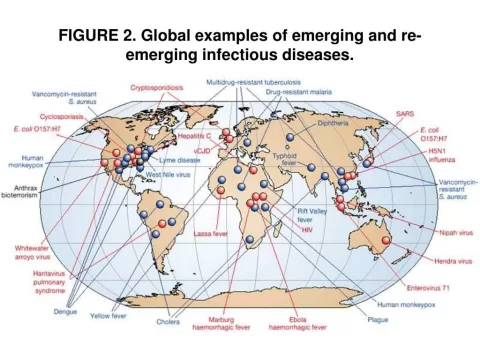The recent extension of the COVID PREP Act Declaration marks a significant milestone in national health policy, as it reinforces the commitment to pandemic preparedness. Signed by HHS Secretary Xavier Becerra, this declaration extends liability immunity through December 31, 2029, safeguarding those involved in countermeasures against COVID-19. Under the Public Readiness and Emergency Preparedness Act, this measure ensures that individuals and organizations can focus on their efforts without the fear of legal repercussions, except in cases of willful misconduct. This move is crucial as it comes at a time when HHS COVID-19 measures are pivotal in managing ongoing public health challenges. By extending health emergency immunity, the government aims to bolster the development and distribution of necessary medical countermeasures, fostering a stronger response to potential future outbreaks.
In a decisive action to enhance public health safety, the latest amendment to the COVID PREP Act Declaration has been introduced to strengthen the nation’s defenses against health emergencies. This legislative framework, which provides liability protections for entities engaged in public health responses, plays a crucial role in ensuring that the medical community can operate effectively during crises. By extending immunity provisions, the HHS aims to encourage innovation and prompt action in the face of infectious diseases and potential pandemics. Such measures are not only vital for addressing current health threats but also serve as a foundation for future preparedness initiatives. Ultimately, this declaration underscores the government’s commitment to supporting healthcare providers and pharmaceutical companies in their efforts to protect public health.
Understanding the COVID PREP Act Declaration Extension
The recent extension of the COVID PREP Act Declaration by HHS Secretary Xavier Becerra marks a significant development in the ongoing public health response to the pandemic. This amendment ensures that liability immunity for those involved in COVID-19 countermeasures remains in effect until December 31, 2029. This immunity is crucial for encouraging pharmaceutical companies and healthcare providers to engage in the development and distribution of vaccines and treatments without the fear of litigation, except in cases of willful misconduct.
Extending this declaration under the Public Readiness and Emergency Preparedness (PREP) Act is vital for pandemic preparedness. It not only protects those involved in the manufacturing and administration of COVID-19 countermeasures but also signals the government’s commitment to maintaining a robust healthcare infrastructure capable of responding to future health emergencies. The immunity provisions are designed to mitigate the financial risks associated with the rapid response needed during public health crises, thus fostering innovation and swift action.
Implications of Liability Immunity in Public Health
Liability immunity under the PREP Act plays a pivotal role in ensuring that healthcare entities and individuals can operate effectively during health emergencies. By extending this immunity, the HHS aims to alleviate the fears surrounding potential lawsuits related to adverse effects of COVID-19 vaccines and treatments. This move is essential for maintaining public trust and encouraging widespread participation in vaccination campaigns, which are critical for achieving herd immunity.
Furthermore, the declaration’s protection extends beyond just COVID-19; it encompasses various public health challenges and threats. This broad scope highlights the importance of having a solid legal framework in place that supports pandemic preparedness initiatives. As healthcare providers and pharmaceutical companies focus on addressing current and future health emergencies, liability immunity acts as a safety net, allowing them to prioritize patient care and public health over legal concerns.
The Role of HHS in Pandemic Preparedness
The U.S. Department of Health and Human Services (HHS) plays a crucial role in pandemic preparedness and response. By signing amendments to the PREP Act, the HHS Secretary can swiftly respond to emerging health threats. This proactive stance is necessary for safeguarding public health, especially in light of the ongoing challenges posed by COVID-19 and other infectious diseases. HHS’s commitment to extending the PREP Act declaration illustrates its recognition of the lingering risks associated with the pandemic.
In addition to liability immunity, HHS’s measures include funding for research and development of vaccines and treatments, as well as support for healthcare infrastructure. These efforts are part of a comprehensive strategy to ensure that the nation is well-equipped to handle future health emergencies. By enhancing the legal protections for those involved in public health efforts, HHS fosters an environment where innovation can thrive, ultimately benefiting public health outcomes.
Key Features of the PREP Act and Its Amendments
The PREP Act, initially enacted in 2005, is designed to provide liability immunity for entities involved in the development and distribution of medical countermeasures during public health emergencies. The recent amendments, including the extension of the COVID PREP Act Declaration, reinforce this framework by outlining specific protections for various stakeholders in the health sector. This includes pharmaceutical companies, healthcare providers, and public health officials who play critical roles in combating health crises.
One of the key features of the PREP Act is its provision for immunity against claims arising from the use of countermeasures, such as vaccines and therapeutics. This immunity is vital for fostering an environment where rapid development and deployment of medical solutions can occur without the deterrent of litigation. The act also emphasizes the importance of maintaining a clear and consistent response strategy to potential health threats, thereby enhancing overall pandemic preparedness.
Current and Future Public Health Threats
The extension of the COVID PREP Act Declaration is not only relevant to the current pandemic but also sets a precedent for how the U.S. prepares for future public health threats. The HHS recognizes that the immunity granted under the PREP Act is crucial for responding to various biological and chemical threats, as evidenced by similar declarations in place for diseases such as Ebola and Zika virus. This proactive approach is essential for ensuring that the nation remains vigilant against potential health emergencies.
As the landscape of public health continues to evolve, the importance of having robust legal protections in place cannot be overstated. The ability to respond swiftly to emerging threats will depend significantly on the framework established by the PREP Act and its amendments. As we look ahead, ongoing evaluations and updates to these provisions will be necessary to address the ever-changing nature of public health risks.
The Importance of Strategic Preparedness and Response
Strategic preparedness and response are paramount in managing public health emergencies effectively. The declaration under the PREP Act emphasizes the need for coordinated efforts among federal, state, and local agencies to ensure that resources are allocated efficiently during a crisis. HHS’s role in this process involves not only extending liability immunity but also facilitating collaboration among various stakeholders in the healthcare system.
Moreover, strategic preparedness entails continuous assessment of potential threats and the development of comprehensive plans to mitigate them. This includes investing in research, public health infrastructure, and community engagement initiatives that promote awareness and readiness. By fostering a culture of preparedness, HHS can help ensure that the nation is better equipped to handle future health emergencies with resilience and efficacy.
Impact of the PREP Act on Healthcare Providers
The PREP Act’s liability immunity provisions have a profound impact on healthcare providers, particularly in the context of COVID-19. By extending these protections, HHS allows healthcare professionals to focus on patient care without the looming threat of lawsuits related to the administration of countermeasures. This assurance is critical in encouraging healthcare workers to participate in vaccination efforts and other public health initiatives.
Furthermore, the PREP Act facilitates a more collaborative environment among healthcare providers, researchers, and pharmaceutical companies. With liability concerns alleviated, these entities can work together more effectively to develop and implement innovative solutions to combat public health threats. This collaboration is essential for ensuring that the healthcare system is prepared to respond rapidly and efficiently to future emergencies.
Broader Implications of HHS COVID-19 Measures
The measures taken by HHS regarding COVID-19, including the extension of the PREP Act Declaration, have broader implications for public health policy and practice. These actions underscore the necessity of having a comprehensive legal framework that supports rapid responses to health emergencies. By establishing clear guidelines and protections, HHS can foster a more resilient healthcare system capable of addressing complex public health challenges.
Additionally, the focus on liability immunity reflects a growing recognition of the need for a balanced approach to public health. While protecting healthcare providers is essential, it is equally important to ensure that patients receive safe and effective treatments. HHS’s ongoing efforts to refine and adapt its COVID-19 measures will be crucial in shaping the future of public health preparedness and response.
Looking Ahead: Future Considerations for Public Health Legislation
As we move forward from the COVID-19 pandemic, it is essential to consider the future of public health legislation, including potential updates to the PREP Act and similar frameworks. The lessons learned from the current health crisis should inform policymakers as they evaluate the effectiveness of existing legal protections and identify areas for improvement. Ongoing discussions about public health preparedness will likely lead to enhanced measures that address the evolving nature of health threats.
Moreover, the engagement of various stakeholders, including healthcare providers, public health officials, and legal experts, will be critical in shaping future legislation. Ensuring that public health laws are adaptable and responsive to emerging challenges will be vital for maintaining a robust healthcare system. By prioritizing collaboration and innovation, the U.S. can better prepare for the next public health emergency.
Frequently Asked Questions
What does the COVID PREP Act Declaration Extension entail?
The COVID PREP Act Declaration Extension, signed by HHS Secretary Xavier Becerra, extends liability immunity for COVID-19 countermeasures until December 31, 2029. This means that individuals and entities involved in the development, production, testing, distribution, and administration of these countermeasures are protected from legal claims, except in cases of willful misconduct.
How does the COVID PREP Act Declaration Extension impact public health emergency responses?
The COVID PREP Act Declaration Extension enhances pandemic preparedness by ensuring that healthcare providers and manufacturers have liability immunity when responding to public health emergencies, allowing quicker and more efficient distribution of COVID-19 countermeasures without the fear of legal repercussions.
Who benefits from the COVID PREP Act Declaration Extension?
The COVID PREP Act Declaration Extension benefits a wide array of stakeholders, including pharmaceutical companies, healthcare providers, and governmental agencies involved in COVID-19 response efforts. By providing liability immunity, it encourages participation in the development and administration of critical countermeasures.
Are there exceptions to the COVID PREP Act Declaration Extension immunity?
Yes, the COVID PREP Act Declaration Extension includes exceptions for cases of willful misconduct. This means that while most claims are protected under the immunity provisions, actions that involve intentional wrongdoing are not covered.
Why was the COVID PREP Act Declaration Extension necessary?
The COVID PREP Act Declaration Extension was necessary to maintain robust public health emergency responses and to ensure that entities involved in combating COVID-19 can operate without the fear of lawsuits, thereby facilitating quicker access to vaccines and treatments during ongoing health emergencies.
What is the significance of the Public Readiness and Emergency Preparedness (PREP) Act in relation to COVID-19?
The Public Readiness and Emergency Preparedness (PREP) Act is crucial for COVID-19 as it provides a legal framework that grants liability immunity for those involved in the pandemic response. This includes manufacturers and healthcare providers, allowing them to focus on delivering essential countermeasures without the burden of legal liabilities.
How does the COVID PREP Act Declaration Extension relate to other HHS COVID-19 measures?
The COVID PREP Act Declaration Extension is part of a broader set of HHS COVID-19 measures aimed at enhancing national health security. It complements other emergency declarations by ensuring that key stakeholders in the pandemic response are legally protected while they work to mitigate the effects of COVID-19.
What future public health emergencies does the COVID PREP Act Declaration Extension anticipate?
The COVID PREP Act Declaration Extension anticipates future public health emergencies by maintaining a legal framework that allows for rapid response to credible risks. This includes preparedness for potential outbreaks or threats that could arise, ensuring that the healthcare system is ready to act swiftly.
What types of countermeasures are covered under the COVID PREP Act Declaration Extension?
Under the COVID PREP Act Declaration Extension, countermeasures include vaccines, treatments, and other medical supplies used to prevent or mitigate the effects of COVID-19. The extension ensures that entities involved in these countermeasures are protected from liability as they respond to the ongoing pandemic.
When does the COVID PREP Act Declaration Extension expire?
The COVID PREP Act Declaration Extension is set to expire on December 31, 2029, unless further amendments or extensions are made in response to evolving public health needs.
| Key Point | Details |
|---|---|
| HHS Secretary Extension | The declaration has been extended by HHS Secretary Xavier Becerra through December 31, 2029. |
| Liability Immunity | Grants immunity for certain claims related to COVID-19 countermeasures, with exceptions for willful misconduct. |
| Scope of Immunity | Applies to groups or individuals involved in the development, production, testing, and administration of countermeasures. |
| Origin of PREP Act | Enacted in 2005 to protect pharmaceutical companies during public health emergencies and fund pandemic preparedness. |
| Distinct Declaration | The PREP Act declaration is independent from other emergency declarations for various biological threats. |
Summary
The COVID PREP Act Declaration Extension signifies an important step in public health safety, as it extends liability immunity through December 31, 2029. This extension aims to provide reassurance to those involved in the development and administration of COVID-19 countermeasures, ensuring that they can operate without the fear of legal repercussions, barring instances of willful misconduct. By reinforcing the protections established by the PREP Act, the HHS continues to bolster preparedness against current and future public health emergencies.
The content provided on this blog (e.g., symptom descriptions, health tips, or general advice) is for informational purposes only and is not a substitute for professional medical advice, diagnosis, or treatment. Always seek the guidance of your physician or other qualified healthcare provider with any questions you may have regarding a medical condition. Never disregard professional medical advice or delay seeking it because of something you have read on this website. If you believe you may have a medical emergency, call your doctor or emergency services immediately. Reliance on any information provided by this blog is solely at your own risk.








